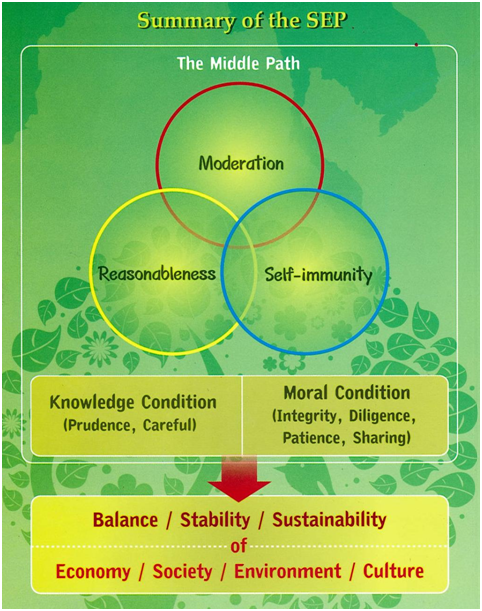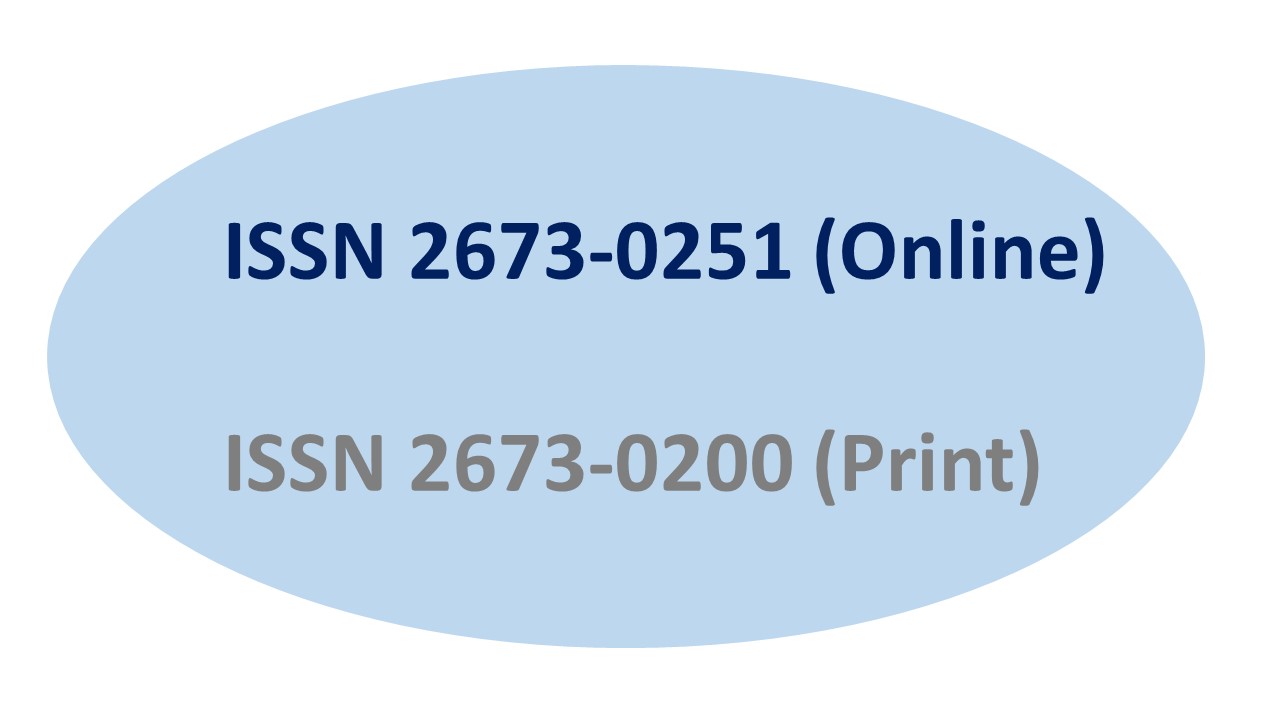Transformative Learning Based on Philosophy of Sufficiency Economy : A Critical tool for Destructing Materialism during COVID-19
Keywords:
Materialism, Sufficiency Economy, Transformative Learning, Wisdom processAbstract
Shutdowns during the coronavirus situation create short-term cost for global economies both at the micro and macro level. The world population needs to adapt individual life and social life. Globalization has been leading to increase materialism. At the same time, values of goodness, morality and ethics of society are slightly declining as well. Transformative learning under ethical principles related to value of sufficiency called “Sufficiency Economism” is one of the critical tools to unlock and fully develop human potential. People will be able to lower material value and maintain the mental value of peaceful society. The ultimate target is to achieve global sustainable development. The article is willing to present a model of transformative learning on behalf of drawing much of their inspiration through “Sufficiency Economism” concepts. Conceptualization in transformative learning is resulted in outstanding learning outcomes focused on reducing materialism on modern society. New changes can form true happiness and world peace for others suffering from COVID-19 situation.
References
Abdul‐Rahaman, A. R., & Hongxing, Y. (2020). China's new normal and the implications to domestic and global business. International Journal of Finance & Economics, 25(2), 157-171.
Banphasirichot, C. (2003). Wiboon, the Village Headman, with the learning for self-reliance and sustainable community development. Chachoengsao: Eastern Forest Community Learning Center (Agroforestry).
Chakphisut, S. (2005). Alternative Studies: The world of learning outside of school. Bangkok: The Thailand Research Fund.
Chamnong, W. (1978). Learning on basic theory and applications. Bangkok: Bamrungsarn
Limited Partnership.
Chumtakhob, D. (2020). Sufficiency Economy: An alternative survival strategy for the COVID-19 pandemic. Social Research and Development Journal, 2(3), 11-22.
Davis, E. (2020). Our ‘new normal’. Early Years Educator, 22(1), 14-16.
Division of Communicable Diseases, Department of Communicable Disease Control, Ministry of Public Health. (2021). Coronavirus Disease 2019 (COVID-19) Situation, Public Health Measures and Problems Preventing and Controlling Diseases in Travelers. Retrieved 10 June, 2023 from: https://1) Analysis of the COVID situation (15 Jan. 64cp).pdf (moph.go.th)
Eschenbacher, S. & Fleming, T. (2020). Transformative dimensions of lifelong learning: Mezirow, Rorty and COVID-19. International Review of Education, 66, 657-672.
Gardner, P. (2021). Contemplative pedagogy: Fostering transformative learning in a critical service learning course. Journal of Experiential Education, 44(2), 152-166.
Gu, S., Slusarczyk, B., Hajizada, S., Kovalyova, I., & Sakhbieva, A. (2021). Impact of the COVID-19 pandemic on online consumer purchasing behavior. Journal of Theoretical and Applied Electronic Commerce Research, 16, 2263-2281.
Heingraj, S., & Amornporn, S. (2019). The introduction of the Philosophy of Sufficiency Economy and its application to consumer context. International Society of Markets and Development, 4(1), 1-19.
Office of the National Economic and Social Development Board. (2017). National Economic and Social Development Plan, Vol. 12 (2017 - 2021). Bangkok: Office of the Prime Minister.
Office of the Education Council Secretariat, Ministry of Education. (2017). National Education Plan 2017-2036. Bangkok: Prikwan Graphic.
Owen R. (2021). Using mindfulness to promote transformative learning in implicit racial bias training. Adult Learning, 32(3), 125-131.
Perry S. A. B. (2021). Participatory felling: Re-visioning transformative learning theory
through Heron’s whole person perspective. Adult Education Quarterly, 71(4), 338-355
Sangsawangwatthana, T., Sirisaiyas, N., & Bodeerat, C. (2020). “New normal” A new way of life and adaptation of Thai people after Covid-19: Work Education and Business. Journal of Local Governance and Innovation, 4(3), 371-386.
Sanyawiwat, S. (2008). Theories and strategies for social development. 7th edition, Bangkok:
Chulalongkorn University Printing House.
Schnepfleitner, F. & Ferreira, M. (2021). Transformative learning theory-is it time to add a fourth core element? Journal of Educational Studies and Multidisciplinary Approaches, 1(1), 41-49.
Sirasunthorn, P. (2009). Learning Action Community: Concepts, Techniques and Processes. Bangkok: Chulalongkorn University Press.
Sternberg, R. J. (2021). What is wisdom? A unified 6P framework. Review of General Psychology, 25(2), 134-151.
Suphap, S. (2000). Thai society and culture values: Family, Religion, and Tradition. Bangkok: Thai Wattana Panich Printing Company Limited.
The Chaipattana Foundation. (2017). Overview the Philosophy of Sufficiency Economy. Retrieved
October,2023. From https://www.chaipat.or.th/eng/concepts-theories.html
Tinnakul, N. (2006). Social and cultural changes. Bangkok: Chulalongkorn University Printing House.
Toh, S.Y., Yuan, S.W., & Kaur, R.K. (2021). Do materialistic consumers buy more during the COVID-19 pandemic? Social consumption motivation of anxious Malaysians in the face of existential threat of death. International Journal of Customer Relationship Marketing and Management, 13(1), 1-18.
Wasi, P. (2001). Intellectual process. Reform Promotion. 4(39), 70–71.

Downloads
Published
Issue
Section
License
Copyright (c) 2023 International Journal of Public Health and Health Sciences

This work is licensed under a Creative Commons Attribution-NonCommercial-NoDerivatives 4.0 International License.
If the manuscript is accepted for publication, copyright of the article shall be assigned to the IJPHS. After acceptance of a manuscript, the authors will be requested to complete a copyright transfer agreement form






